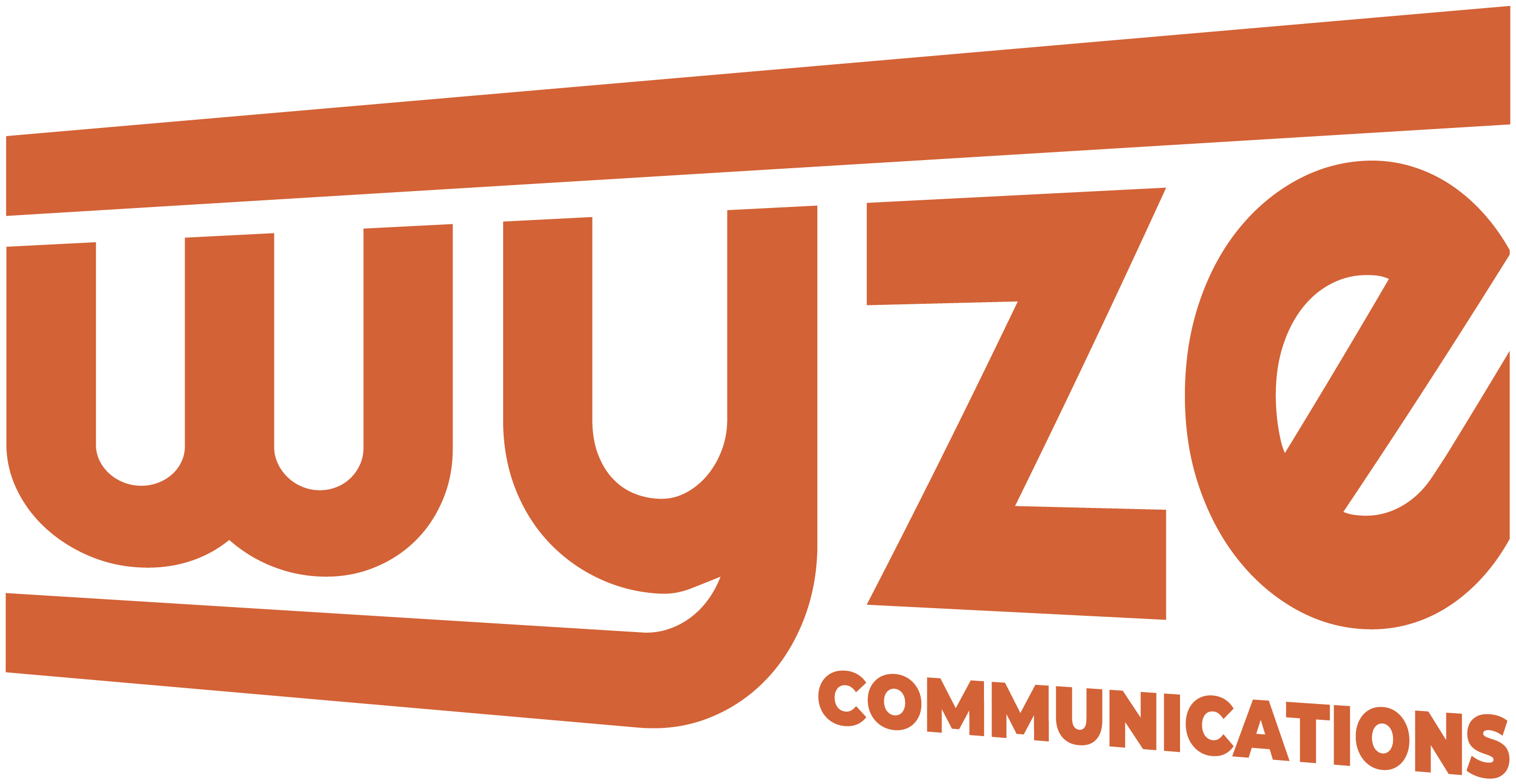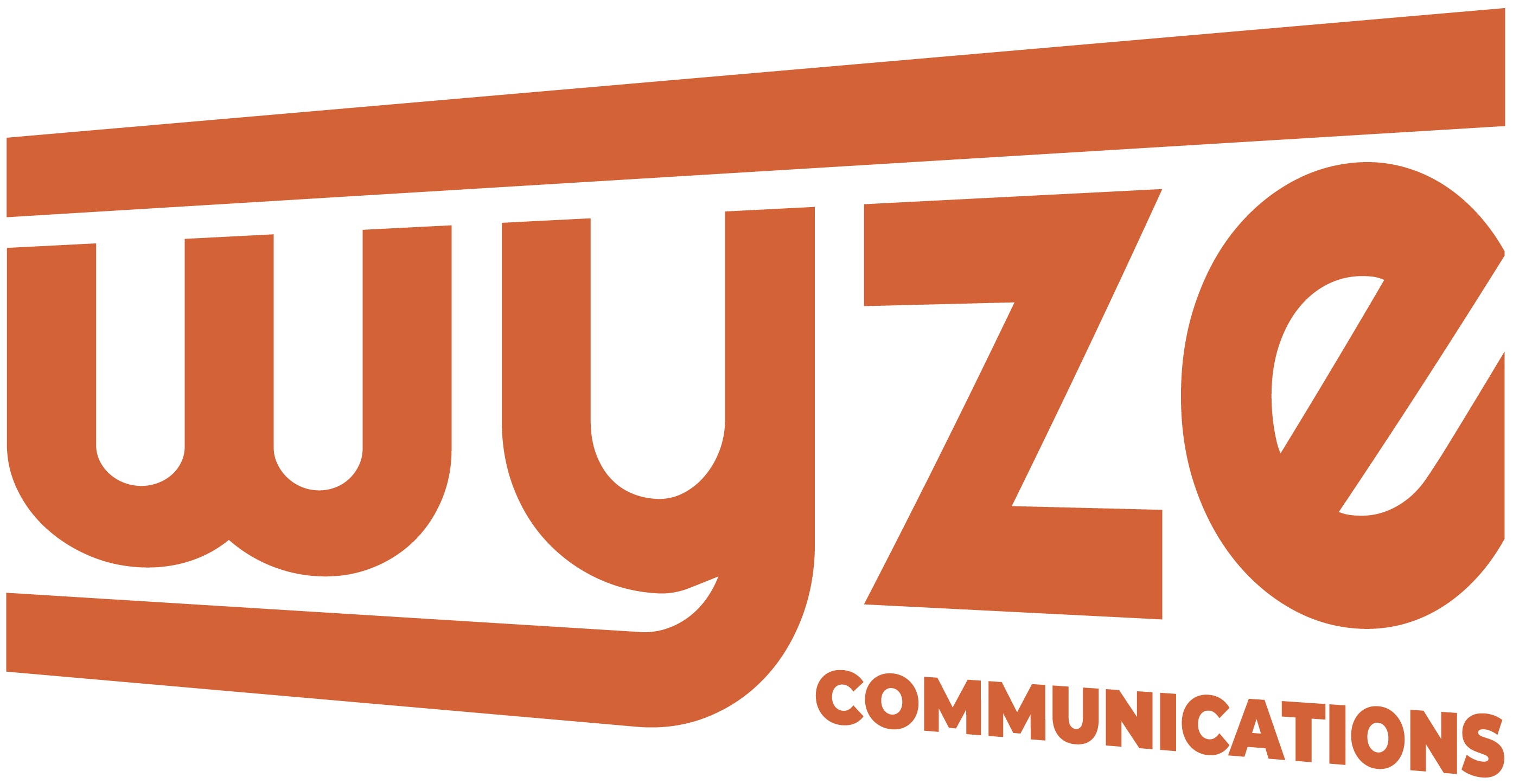What matters in life is not what happens to you but what you remember and how you remember it – to tell about it.
Gabriel García Marquez
There is little difference between succeeding and failing at digitisation: if only one relevant success factor remains neglected, the whole strategic digitalisation initiative can end up as a costly paper tiger. WYZE Communications employs a modular approach to digitisation to ensure that all relevant factors are considered for a successful transition.
The limits of our language are the limits of our world – the same applies to companies. Numbers, facts, and product features don’t speak for themselves. They don’t convince shareholders, they don’t wow clients and carry no meaning for employees. Visions, strategies, projects, and transformation processes require stories justifying their plausibility, timelessness, and necessity.
It is precisely in complex, dynamic, and ambiguous environments that stories provide the stakeholder with an interpretational framework which is compatible with their world. These can be used to build bridges and establish competitiveness, Cooperativeness, loyalty, trust, and commitment.
Storytelling as a growth driver
In a medially conveyed, connected and increasingly virtual world stories have the power to create reality. This explains the increasing importance of storytelling for the success of a company. Being able to embed your own business in a viable story and tie this to the needs and values of the target group has a huge influence on company value. The same applies when this is not achieved.
WYZE Communications supports you in telling and effective story for both internal and external communication and developing into a sustainable growth driver.

Sometimes reality is too complex. Stories give it form.
Jean Luc Godard
Corporate storyline and positioning
Successful corporate storytelling addresses a number of strategic goals:
- Makes the identity, vision, and culture of the company tellable and understandable
- Grants legitimacy to the strategies, positions, and decisions of the company
- Explains the service portfolio and the value of the products and services
- Provides the optimal positioning for the company in terms of the relevant market and image segments
- Promotes a positive interpretation of the company in the relevant discourse while simultaneously suppressing competing interpretations; this is why storytelling remains a competition-oriented process as well
WYZE Communications helps companies to position themselves towards clients, partners, employees, and the public. We support you in establishing an elevated level of consistency in your communication processes, developing themes with strong potential with regards to differentiation and positioning, and carrying these over to professionally managed brand development campaigns.
Our key areas:
- Positioning analysis and strategy
- Strengthening corporate identity and developing individual speech and image styles
- Defining central storylines around vision, strategy, products, and services
- Risk and crisis communication
- Designing thought leadership campaigns and initiatives
Visualisation
In the communication context, visual communication is essential for digital marketing and generating leads. Be it brand or campaign videos, concept and idea visualisation, or animations and interactive graphics for social media platforms, if pictorial elements are not used in a creative and effective manner, awareness and mobilisation of target groups cannot be achieved.
WYZE Communications designs and produces visual communication features and integrates these into multimedia campaigns.
Our key areas:
- Developing a unique illustration style
- Producing image videos, video case studies and event and campaign videos
- Developing and implementing everything from tailor-made visual tools to complex CAD-based animations
- Static and animated infographics
- Visual storytelling
“I say unto you: one must still have chaos in oneself to be able to give birth to a dancing star. I say unto you: you still have chaos in yourselves”
Friedrich Nietzsche
Insights & ecosystems
Monologues rarely produce insights. The same goes for when sources of information, conversation partners and impulse topics are drawn solely from within the immediate environment of a company. To recognise rapid and far-reaching changes in their markets early, companies need a wider field of view.
That means posing new, unconventional questions and viewing the environment from hitherto unfamiliar perspectives.
Networks prevent echo chambers:
If these perspectives are not integrated into the company’s own world systematically, the organisation will quickly come to lose the language and instruments enabling it to describe changes in the necessary depth. As a result, the organisation becomes disconnected from its environment and becomes a victim of its own filter bubble and echo chamber, losing its connection to the world of its clients, employees, and competitors. Companies are thus well advised to establish networks which provide them with input which, while relevant, comes from external sources.
WYZE Communications supports you in establishing and operating a top-quality, multi-disciplinary ecosystem. We develop innovative and effective formats which have you confront everything from new insights, experiences, scenarios, and perspectives to topics relevant to you. Moreover, we integrate these into your organisation’s storylines. Darüber hinaus integrieren wir diesen Input in die Storylines Ihrer Organisation.
Our key areas:
- Building brand-related communities and expert networks
- Designing and organising event formats and collaborations
- Designing and producing open corporate content formats and media
The single biggest problem in communication is the illusion that it has taken place.
George Bernard Shaw
Project communications
Strategically important and critical themes are increasingly being managed in the form of projects. However, this often results in enormous strain for not only the operational teams, but the responsible management and employees who will be affected by the changes as well; pressure to succeed, restrictions to time and budget, competition within the company itself and far-reaching but often unclear consequences mean that projects are almost always in a state of uncertainty.
Communication plays an enormously important role in this situation. It must on the one hand ensure a formally secure and legally sound reporting system and, on the other hand, serve as a means of conveyance and explanation for all affected stakeholders. In this regard, project communication must ensure de-escalation and a goal-orientated solution in project-related conflicts, a fair weighing of interests, and sufficient acceptance of the project.
Storyline as a reference point for project communication:
- The basis of successful project communication is a consistent, conclusive, and emotionally chargeable storyline which is compatible with the different stakeholder perspectives.
- Moreover, it serves to keep both the project team motivated while they under enormous strain and the responsible management committed during critical phases. Regular communication of milestones and instances of success in the project is therefore essential.
- Finally, when the project has been completed, internal communication must ensure the sustainability of the changes implemented.
WYZE Communications combines extensive experience both in operational project management and programme control with communicative competence and uses these competences to ensure the communicative safeguarding of your critical projects.
Our key areas:
- Development of a project-related storyline and communication plan
- continual multimedia communication via the intranet, offline media, and focused event formats to present partial results from projects and initiatives of the programme
- Management of interfaces for financial communication (IR), the works council and other relevant internal units
- Extensive project reporting and ensuring the provision of a reporting process which stands up to auditing
- Risk and crisis communication in the context of the project

